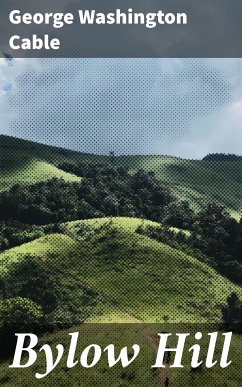In "Bylow Hill," George Washington Cable presents a rich tapestry of Southern life post-Civil War, examining the interplay between race, class, and identity through the narrative of a Louisiana family. Cable employs a lyrical and nuanced prose style, blending vivid descriptions with a keen psychological insight that brings his characters to life. The novel is often heralded for its poignant exploration of social issues and its intricate portrayal of Creole culture, making it a significant contribution to the Southern Gothic literature of its time. George Washington Cable, born in New Orleans, drew heavily from his own experiences and the complexities of Southern society in crafting this work. His immersion in the local culture and his advocacy for racial equality were pivotal influences that shaped his writing. Cable's deep understanding of the regional tension between tradition and change adds depth and credibility to the narrative, reflecting both personal and societal struggles of his era. "Bylow Hill" is highly recommended for readers interested in a profound exploration of the South's social landscape. Cable'Äôs eloquent storytelling not only entertains but also challenges readers to engage with its historical context and moral complexities, making it a timeless reflection on human relationships and societal evolution.
Dieser Download kann aus rechtlichen Gründen nur mit Rechnungsadresse in A, B, BG, CY, CZ, D, DK, EW, E, FIN, F, GR, H, IRL, I, LT, L, LR, M, NL, PL, P, R, S, SLO, SK ausgeliefert werden.









